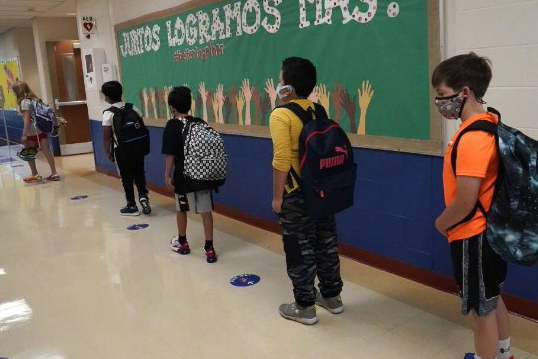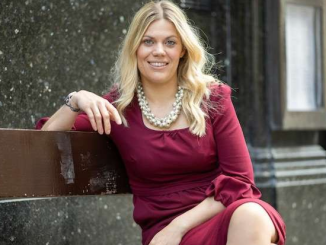
Last month, 20 major education organizations formed a coalition “aimed at squelching misinformation” about social-emotional learning. A few weeks later, NPR ran a major article titled “How the Right Turned SEL into a Critical Race Theory Lightning Rod.”
Sorry, you don’t need to be a conservative to draw the connection between SEL and critical race theory. You merely need to be literate.
That connection is not based on misinformation but rather on information plainly available from the website of the Collaborative for Social and Emotional Learning (CASEL). CASEL is the central organization in the SEL sector, which is eating up an increasingly large share of school budgets and classroom instructional time. From November 2019 to April 2021, SEL spending grew by 45% to $765 million, and it has undoubtedly grown substantially more with the infusion of COVID-19 relief spending. Until a few years ago, SEL was a broadly bipartisan endeavor focused on facilitating uncontroversial skills such as “self-awareness” and “social awareness.” But in 2019, CASEL embraced a highly controversial interpretation of these skills in what it called “transformative SEL.”
CALIFORNIA STUDENTS LEARNED NO MATH IN TWO YEARS, YET GOV. NEWSOM WANTS TO BE PRESIDENT
In the “transformative” model, “self-awareness” encompasses a student’s understanding of their “identity.” Their “identity” is to be understood in terms of “intersectionality,” a concept coined by Kimberle Crenshaw, the woman who coined the term “critical race theory.” This “transformative SEL” encourages students to understand their “identity” in terms of their belonging or non-belonging to identity politics categories that signify privilege or oppression. Transformative SEL also embraces “culturally relevant/responsive” pedagogy, an educational philosophy pioneered by Gloria Ladson-Billings, the woman who introduced critical race theory to the field of education. According to Ladson-Billings, proper “culturally relevant/responsive” teaching must necessarily be politicized, as it must aim to shape a “critical” or “sociopolitical consciousness” in students.
Many of the major education organizations that are lining up to “squelch misinformation” and fight the politicization of SEL were all too happy to politicize it themselves not long ago. In its “Roadmap to Reopening,” a document prepared by CASEL and endorsed by organizations such as the Council of Chief State School Officers, the School Superintendents’ Association, and the National Association of Secondary School Principals, the SEL competency of “self-management” was defined in terms of “practicing anti-racism.” Then, as now, the concept of “anti-racism” was most prominently publicly defined by Ibram X. Kendi, author of How to Be an Antiracist, who declared that critical race theory was foundational to his work, which openly calls for racial discrimination to redress grievances: “The only remedy to past discrimination is present discrimination.”
Any parent who has been paying the slightest bit of attention to the education policy debates of the past two years need only go to CASEL’s website to substantiate the concern that SEL may be a vehicle for CRT and/or gender ideology with articles like “Transformative SEL and Mathematical Liberation for 2SLGBTQIA+ Students.” The reason why more and more parents are concerned that SEL is a Trojan horse is because the leading SEL organization, with the blessing of many major education-focused professional and advocacy associations, has all but said, “Hey, you sure could fit some Trojans into this horse we have right here.”
The question of whether, in practice, SEL will serve as a Trojan horse will hinge less on the declarations of major education organizations than on the decisions made by individual schools and teachers. SEL is such a broad term that it could just as easily be slapped onto anodyne friendship-building exercises as politically charged pedagogical techniques. For its part, CASEL promises that “SEL can promote positive mental health” and frames its implementation as part of a “universal” mental health initiative.
Whatever the case, parents are right to ask tough questions about their schools’ SEL initiatives. Parents Defending Education, a leading parental rights organization, has produced a handy list of questions that parents could ask. Contra the education establishment, to ask such questions is not to “politicize” SEL. SEL had already been politicized by an education establishment that, most charitably, was not and still is not capable of recognizing its own far-left bias — or, less charitably, that is gaslighting parents on SEL the same way it gaslit parents on CRT.
* Article from: The Washngton Examiner
(*) www.WhitePrideHomeSchool.com


